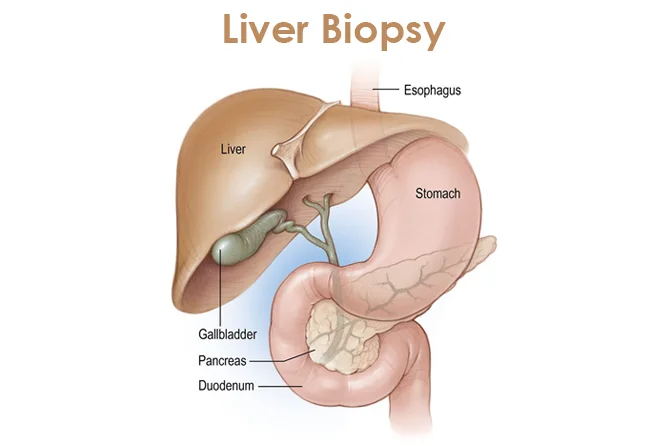Liver Biopsy
A liver biopsy is a simple bedside procedure. A healthcare provider uses a hollow needle to draw a tiny tissue sample from your liver. A pathologist will study it under a microscope. This sample can reveal crucial information about your liver condition.
Why would I need a liver biopsy?
Diagnosis. Healthcare providers consider liver biopsy to be the gold standard for diagnosing many liver diseases and lesions that other tests might suggest but can’t confirm. It can definitively confirm or rule out these conditions. Sometimes it’s the only way to do this.
Staging. You may also have a liver biopsy to check how your chronic liver disease is progressing. A biopsy can determine the level of fibrosis (scarring) in your liver and score it (F0-F4). This helps to forecast your prognosis, inform your treatment plan and check how well it’s working.
What conditions can a liver biopsy diagnose?
A liver biopsy can diagnose certain general liver conditions, such as:

